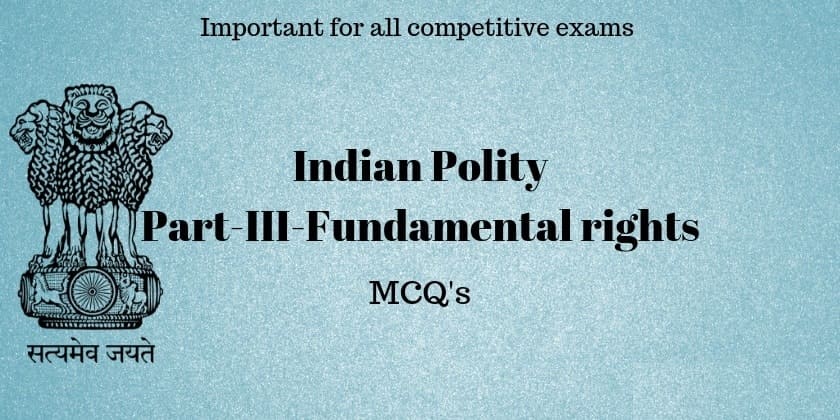31. Which part of the Indian constitution has been described as the soul of the constitution?
A. Fundamental Rights
B. Directive Principles of State Policy
C. The Preamble
D. Right to Constitutional Remedies
Click to show/hide
32. Which one among the following pairs of Articles relating to the Fundamental Rights can not be suspended during the enforcement of emergency under Article 359 of the Indian Constitution?
A. Article 14 and 15
B. Article 16 and 17
C. Article 20 and 21
D. Articles 24 and 25
Click to show/hide
33. Which Fundamental Right cannot be suspended even during an emergency under Article 352 of the Constitution?
A. Right of life
B. Right to equality
C. Right to freedoms
D. Right to education
Click to show/hide
34. Which of the following is enforceable in a court of law?
A. Fundamental Duties
B. Fundamental Rights
C. Directive Principles
D. Preamble
Click to show/hide
35. Fundamental Rights can be suspended during
A. Whenever the President wants without any cause.
B. An emergency by the Parliament
C. Both a. & b.
D. None of the above
Click to show/hide
36. The granting of Fundamental Rights to citizens aims at ensuring
A. socialist government
B. Individual liberty
C. Independence judiciary
D. None of the above
Click to show/hide
37. Who can amend or modify any of the Fundamental Rights given in the Constitution?
A. President can amend of modify
B. Parliament cannot amend or modify
C. Prime Minister can amend or modify
D. Parliament can amend them by special majority
Click to show/hide
38. Which Fundamental Right has been deleted from our Constitution through a Constitutional Amendment?
A. Right to equality
B. Right to freedoms
C. Right to property
D. Right to education
Click to show/hide
39. The Fundamental Rights can be suspended by the
A. President
B. Vice President
C. Supreme Court
D. Prime Minister
Click to show/hide
40. How many Fundamental Rights are enjoyed by the Indians
A. Six
B. Seven
C. Eight
D. Five
Click to show/hide

